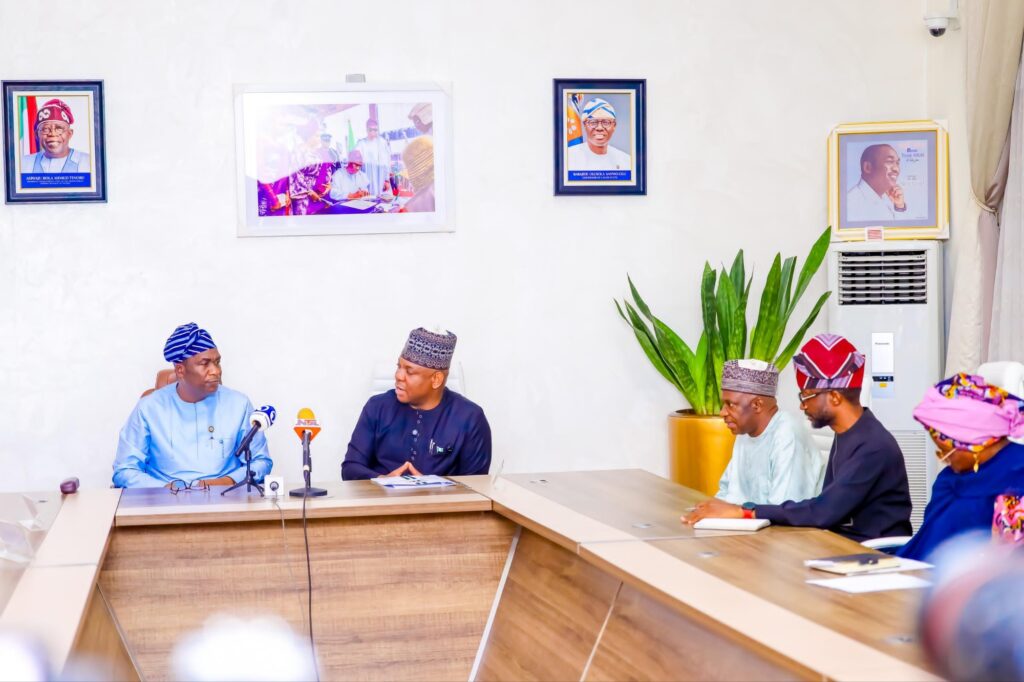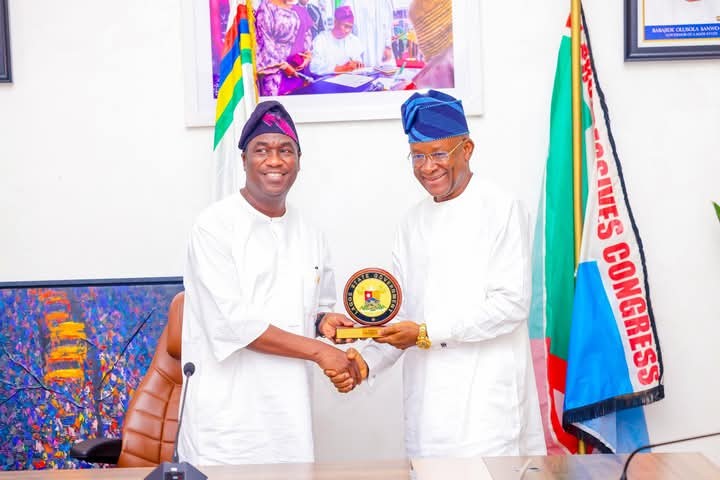In a renewed push to rejuvenate Nigeria’s steel sector, the Lagos State Government has reaffirmed its commitment to working closely with the Federal Government to improve the operating environment for steel companies across the country.
EpeInsights learnt that Governor Babajide Sanwo-Olu, who was represented by his Deputy, Dr. Kadri Obafemi Hamzat, made this pledge while receiving the Minister of Steel Development, Prince Shuaibu Abubakar Audu, and his delegation at his official residence in Ikoyi, Lagos.
Acknowledging the steel sector’s heavy reliance on stable electricity, Sanwo-Olu emphasized the urgent need to resolve the industry’s longstanding power challenges.
“These companies are major energy consumers. Without reliable power, steel production remains unviable. That’s why Lagos is fully aligned with the President’s decentralization efforts in the power sector,” the Governor stated.
He lauded President Bola Tinubu’s signing of the Fifth Amendment (Devolution of Powers) Bill, which now permits states to generate, transmit, and distribute electricity within their domains—a critical move to support industrial operations.
Sanwo-Olu disclosed that Lagos is already acting on this expanded mandate. The state has launched several energy-focused initiatives, including the establishment of the Lagos State Electricity Regulatory Commission and issuance of a Request for Proposal (RFP) to build five new power plants. The goal: deliver embedded power to key industrial zones within the next 12 months.
“By this time next year, we expect those power plants to be operational. We’ll start building grids tailored to industrial needs so that sectors like steel can thrive sustainably,” he added.
During his visit, the Minister of Steel Development highlighted Lagos’ strategic importance in the sector.
“Data from our Ministry shows that 60% of Nigeria’s private steel companies are concentrated in Lagos, Ogun, Sagamu, and Abeokuta. This visit is about listening, learning, and co-creating solutions,” Prince Audu explained.

The Minister also stressed the role of the steel industry in achieving President Tinubu’s broader vision of building a $1 trillion economy, noting that steel is a foundational sector for infrastructure and manufacturing growth.
He commended the Lagos State Government for consistently creating an enabling business environment and encouraged continued collaboration to unlock the sector’s full potential.
With Lagos leading on decentralized energy reforms and federal support for policy innovation, industry stakeholders remain hopeful that Nigeria’s steel sector may finally be on the path to sustainable revival.













